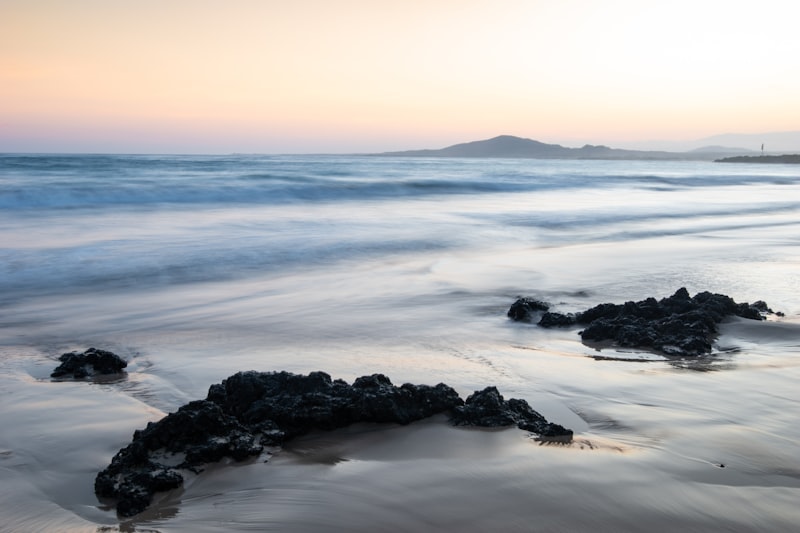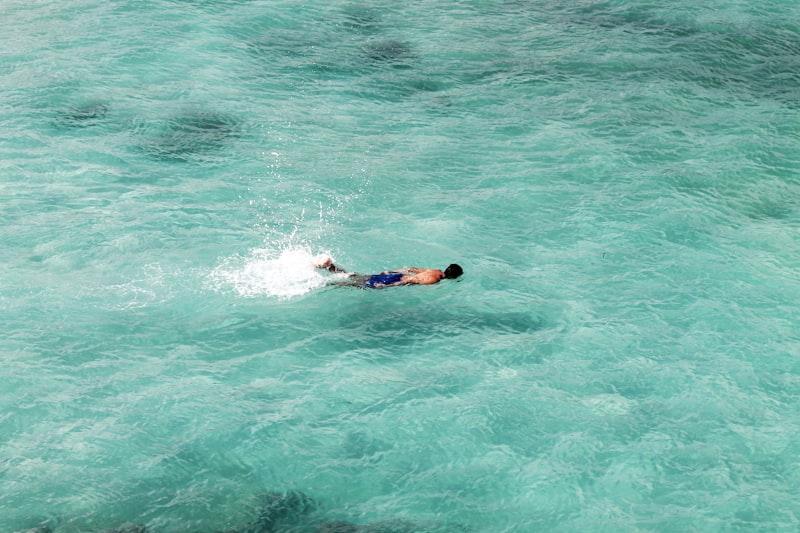Are you curious about the Galapagos Islands and which country they belong to? Well, let me take you on a journey of discovery. The Galapagos Islands, renowned for their unique biodiversity and stunning landscapes, are located in the Pacific Ocean. But which country claims these remarkable islands as its own?
Prepare to be amazed! The Galapagos Islands are part of the beautiful South American nation of Ecuador. Situated approximately 600 miles off its western coast, Ecuador proudly embraces these breathtaking islands as its treasured possession.
Imagine a land where time seems to stand still, where ancient volcanic formations coexist with flourishing ecosystems, and where wildlife thrives in harmony. That is precisely what you’ll find in the Galapagos Islands. It’s a place where nature takes center stage, captivating the hearts and minds of all who visit.
Ecuador recognized the importance of preserving this natural wonder and declared the Galapagos Islands a national park in 1959. Today, this UNESCO World Heritage Site remains protected, allowing visitors to witness the wonders of evolution up close.
The Galapagos Islands offer an unrivaled experience for nature enthusiasts and adventure seekers alike. You can embark on unique expeditions, exploring the diverse landscapes while encountering extraordinary creatures found nowhere else on Earth. Swim alongside sea turtles, walk amongst colonies of playful sea lions, and observe magnificent giant tortoises in their natural habitat.
As you traverse the Galapagos Islands, you’ll encounter a living laboratory that inspired Charles Darwin’s theory of evolution. The awe-inspiring wildlife and distinctive environments serve as a testament to the ongoing process of adaptation and survival.
So, if you’re wondering which country the Galapagos Islands belong to, look no further than Ecuador. Embark on a once-in-a-lifetime adventure to this extraordinary archipelago, and let the magic of the Galapagos capture your imagination. Get ready to witness the wonders of nature in a place where paradise truly exists.
The Galapagos Islands: A Natural Wonder Whose Sovereignty Is Contested
Introduction:
Welcome to the stunning Galapagos Islands, a true marvel of nature. Nestled in the Pacific Ocean, this group of volcanic islands is renowned for its unique biodiversity and captivating landscapes. However, behind the awe-inspiring beauty lies a complex issue—the contested sovereignty of the Galapagos Islands.

Exploring the Galapagos’ Natural Wonders:
Picture yourself walking along pristine white sandy beaches, surrounded by crystal-clear turquoise waters teeming with marine life. The Galapagos Islands offer an unrivaled experience for nature enthusiasts, where you can witness an astonishing array of endemic species found nowhere else on Earth. From the iconic giant tortoises to the playful sea lions and vibrant marine iguanas, every encounter with these incredible creatures leaves visitors in awe.
A Hotbed of Scientific Discovery:
The Galapagos Islands have long served as a living laboratory for scientific research. It was here that Charles Darwin’s observations during his voyage on the HMS Beagle led to groundbreaking theories on evolution and natural selection. Even today, scientists flock to these islands to study their unique ecosystems and unravel the mysteries they hold. The ongoing research provides valuable insights into the delicate balance of nature and helps us understand the impacts of human activity on these fragile ecosystems.
Contested Sovereignty:
Despite being recognized as a UNESCO World Heritage site and a national park of Ecuador, the sovereignty of the Galapagos Islands remains disputed. Various stakeholders, including neighboring countries and international organizations, voice concerns about conservation efforts, fishing rights, and control over the islands’ resources.
Preserving the Galapagos’ Future:
Given the delicate ecological balance of the Galapagos Islands, it is crucial to address the challenges surrounding their sovereignty. Cooperation between nations, conservation organizations, and local communities is essential to ensure sustainable management and protection of this natural wonder. By implementing effective conservation strategies, we can safeguard the Galapagos’ biodiversity for future generations.
In Conclusion:
The Galapagos Islands stand as a testament to nature’s wonders, captivating visitors with their breathtaking landscapes and unique wildlife. However, the issue of sovereignty looms over these remarkable islands, demanding our attention and collaborative efforts. Let us embrace the responsibility of protecting this natural treasure to preserve its magnificence and ecological importance for years to come.
Uncovering the Ownership of the Enchanting Galapagos Islands
Have you ever wondered who owns the captivating Galapagos Islands? These enchanting islands, located in the Pacific Ocean, have long been a source of fascination for explorers and nature enthusiasts alike. In this article, we will delve into the intriguing history and ownership of these remarkable islands.
The Galapagos Islands are a part of Ecuador and have been since they were officially annexed in 1832. However, the ownership of the islands has not always been clear-cut. Over the years, various countries and individuals have laid claim to them, adding an extra layer of complexity to their ownership.
One notable figure in the history of the Galapagos Islands is the British pirate Ambrose Cowley. In the 17th century, Cowley arrived on the islands and claimed them for Britain. However, his claim was never formally recognized, and the islands remained largely uninhabited for centuries.
Fast forward to the 19th century, when Ecuador took control of the Galapagos Islands. The country saw the strategic importance of the archipelago and decided to assert its sovereignty. Since then, the islands have been an integral part of Ecuador’s territory.
Today, the Galapagos Islands are a UNESCO World Heritage site and a national park, which further solidifies Ecuador’s ownership. This status ensures that the islands are protected and preserved for future generations to enjoy.
While Ecuador holds the legal ownership of the Galapagos Islands, it’s important to note that the islands belong to the world. Their unique biodiversity and scientific significance make them a global treasure. Scientists and researchers from around the globe flock to the islands to study its remarkable wildlife and ecosystems.

The ownership of the captivating Galapagos Islands rests with Ecuador. From its annexation in the 19th century to its recognition as a UNESCO World Heritage site, Ecuador has established its authority over these mesmerizing islands. However, the global community also shares a deep sense of stewardship for the Galapagos, recognizing their immense value and working together to protect and preserve them for generations to come.
The Galapagos Islands: A Geopolitical Hotspot for Multiple Nations
Have you ever thought about a place that is not only a natural wonder but also holds significant geopolitical importance? Welcome to the Galapagos Islands, a unique archipelago located in the Pacific Ocean. This extraordinary cluster of volcanic islands has captured the attention of multiple nations, making it a true geopolitical hotspot.
The Galapagos Islands have gained worldwide recognition for their diverse and endemic flora and fauna. However, beneath the surface lies a complex web of geopolitical interests. Due to its strategic location and rich marine resources, these islands have become an area of contention among several nations.
One of the key players in the geopolitics of the Galapagos Islands is Ecuador, the country to which they belong. Ecuador has sovereignty over the archipelago and is responsible for its administration. The islands serve as a vital source of revenue for Ecuador through tourism and fishing activities. Furthermore, Ecuador has established strict environmental regulations to protect the fragile ecosystem of the Galapagos, which is recognized as a UNESCO World Heritage Site.
Apart from Ecuador, other nations have shown interest in the Galapagos Islands. The United States, for example, maintains a military presence on the nearby island of Baltra. This presence allows the U.S. to monitor maritime activities and safeguard its strategic interests in the region. Moreover, countries like China and Russia have also been paying close attention to the Galapagos due to its strategic location and potential economic opportunities.
The significance of the Galapagos Islands goes beyond their remarkable biodiversity. These islands sit at the crossroads of major oceanic currents and act as a bridge between different regions. They offer a gateway for trade routes and access to valuable resources such as oil and minerals. As a result, the waters surrounding the Galapagos have become a subject of diplomatic negotiations and disputes between nations.
A Tug of War Over Paradise: Who Claims the Galapagos Islands?
The Galapagos Islands, a mesmerizing archipelago located in the Pacific Ocean, have long been a topic of fascination and curiosity. But did you know that these enchanting islands are also at the center of a contentious tug-of-war? Yes, you heard it right! The Galapagos Islands have become a subject of dispute among various nations and organizations, all vying to claim their stake in this natural paradise.
It all boils down to the unique ecological importance and biodiversity harbored within the Galapagos Islands. With its extraordinary array of flora and fauna, including the famous giant tortoises and marine iguanas, these islands have captured the attention of scientists, conservationists, and adventurers alike. As a result, nations across the globe want a piece of this ecological treasure.
Ecuador has historically claimed sovereignty over the Galapagos Islands, as they are located just off its coast. Ecuador’s jurisdiction is recognized internationally, and the islands fall under their governance. However, other countries, such as the United States and France, have established scientific research stations on the islands, further complicating the ownership dynamics.
Moreover, environmental organizations and non-profit groups also have a vested interest in the Galapagos Islands. They advocate for the preservation and protection of this unique ecosystem, often working in collaboration with governments to ensure sustainable practices and conservation efforts.
This tug-of-war over paradise raises important questions about the delicate balance between exploration, exploitation, and preservation. Who should rightfully possess the Galapagos Islands? Is it the country geographically closest to them, or the one that invests the most in their conservation?